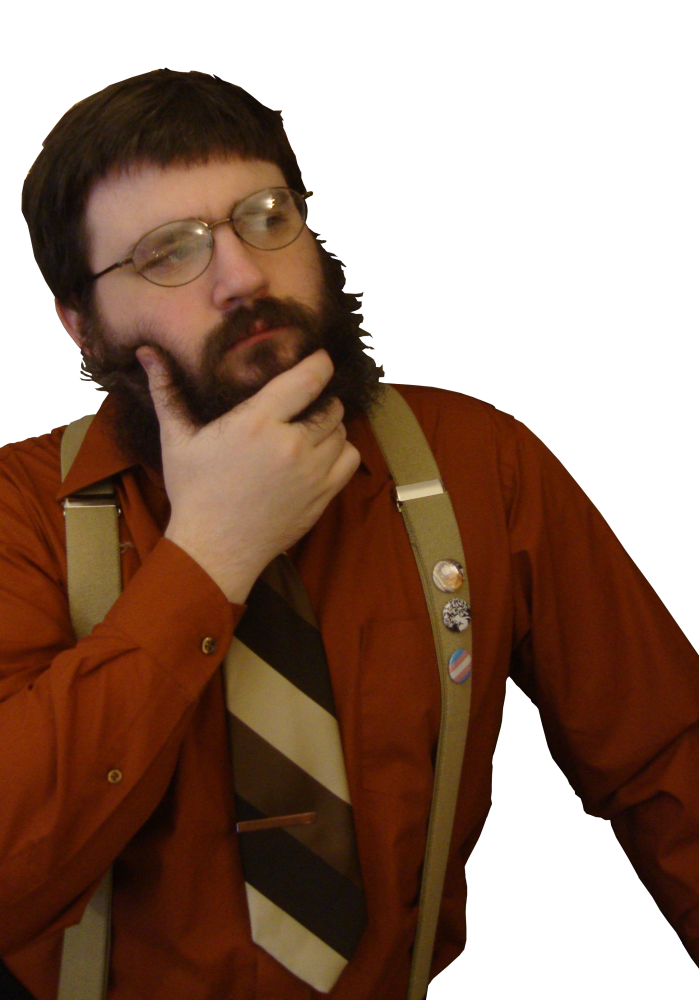Bones cannot feel, and bones composed the entirety of what they were. Thus it followed that ‘feeling’ was a sense alien to them. Whether or not the shelf was ‘cold’ or ‘hard’ was not simply a question without an answer. It was a question without meaning. Yet curiously, the concept of ‘to feel’ existed in their mind without apparent origin.
They considered this, and other questions of similar form and content, for dark hours uncounted before they thought to question how it was that they thought and questioned. Bones have no mind. This was as self-evidently true as their lack of ability to feel. Without a mind there is no organ for the formation of concepts, no curiosity with which to interrogate mysteries.
Thus it followed they must be more than bones.
This revelation led swiftly to another: they were on a shelf. This knowledge did not exist a priori in their aberrantly extant mind, it was the result of perception. The lack of ability to feel ought to have been but one of all the senses they lacked, yet in some manner they did perceive. Attention now fully on the shelf, they cataloged each of its qualia:
- Its dimensions were just adequate for accommodating the heap in which their bones existed.
- Its position relative to them: beneath, above, with walls on 3 sides.
- It was a token example of a type of object called “shelf,” common to crypts, on which bones were often placed.
Bones ought not be able to perceive any of these things. Experimentally they raised their hand to their face and probed their sockets with an extended digit to confirm there was no remnant of an eye there. The sockets were empty, and yet they saw the rough form of their hand moving closer to the point from which their perception originated, then past that point to the imperceptible interior of their skull.
A fresh thought diverted them from their rising irritation. Wherefore had their certainty that bones should not be able to see and feel and cogitate originate? Certainly this a priori knowledge had been correct on the subject of feeling, but in other respects their inborn certainty was manifestly unjustifiable. Why were thy cursed by the presence of these irresolvable contradictions in their mind?
Light.
They did not like light. Their distaste for its appearance was so strong they didn’t even pause to consider that in addition to having yet another a priori concept with which to contend, they had also discovered a preference.
It was brought by a creature who was not bone. Who was more. Who had muscle to explain their movement and orbs with which to see and a gray mass of gelatin to house their mind. A creature that made sense, and used its completely comprehensible existence to pester.
They rose. Hands clasping at the shape that vaguely, plumply resembled their own. Clutching, squeezing. They saw the shape contract without feeling the warmth of meat or the beat of pulse beneath their grasping claws. They did not hear the scream. Their rudimentary vision could not see the face clearly enough to recognize any new familiar concepts in its contortions. A weapon lashed out. A sensible attempt to protect the light bringer’s life—but the bones they struck were maddeningly insensible. Pain did not give it pause. “Pain” wasn’t even an accurate term to describe the dry knowledge that two of their ribs had cracked.
The light shone from the floor. They dropped the coherent corpse, now sensibly insensate, atop the light to smother it. Again alone in timeless dark they settled to their slab to ponder the presence of preference in their mind.
—Nick LS Whelan
December 3, 2022
